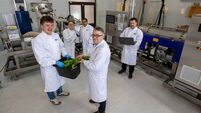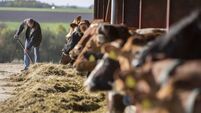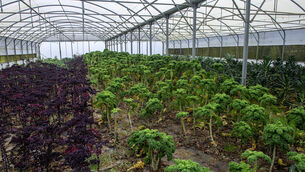Farmers and climate body united in concern over the EU's Carbon Border Adjustment Mechanism

For the Irish Co-operative Organisation Society, an added tax on fertiliser imports into the EU makes food production more expensive.
The EU's Carbon Border Adjustment Mechanism (CBAM) has achieved a rare distinction by uniting farmers and the Climate Change Advisory Council in their concerns about it in Ireland.
For farmers represented by the Irish Co-operative Organisation Society (ICOS), it is simple: according to ICOS president Edward Carr, the CBAM “is essentially a tax on food production".













